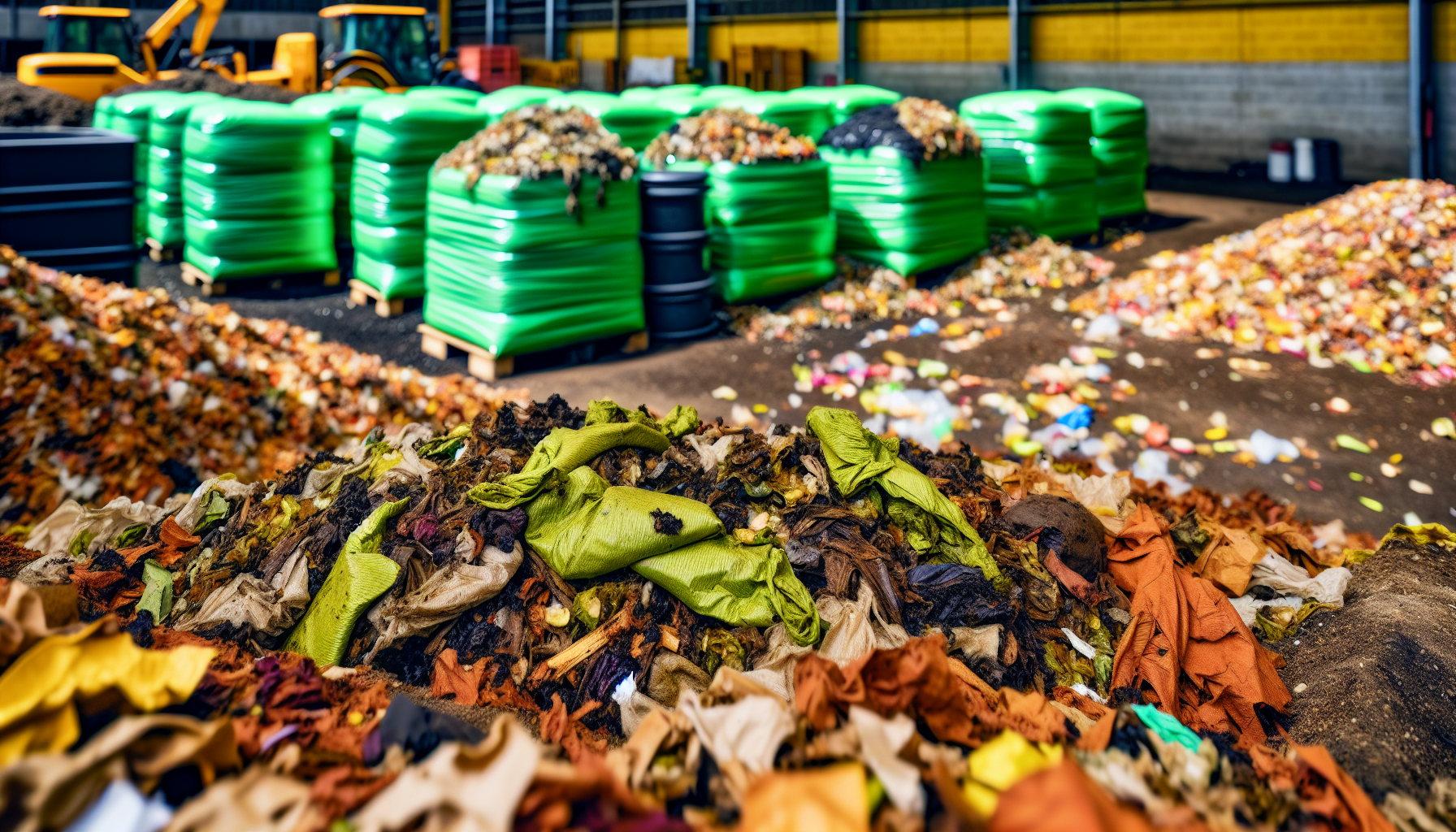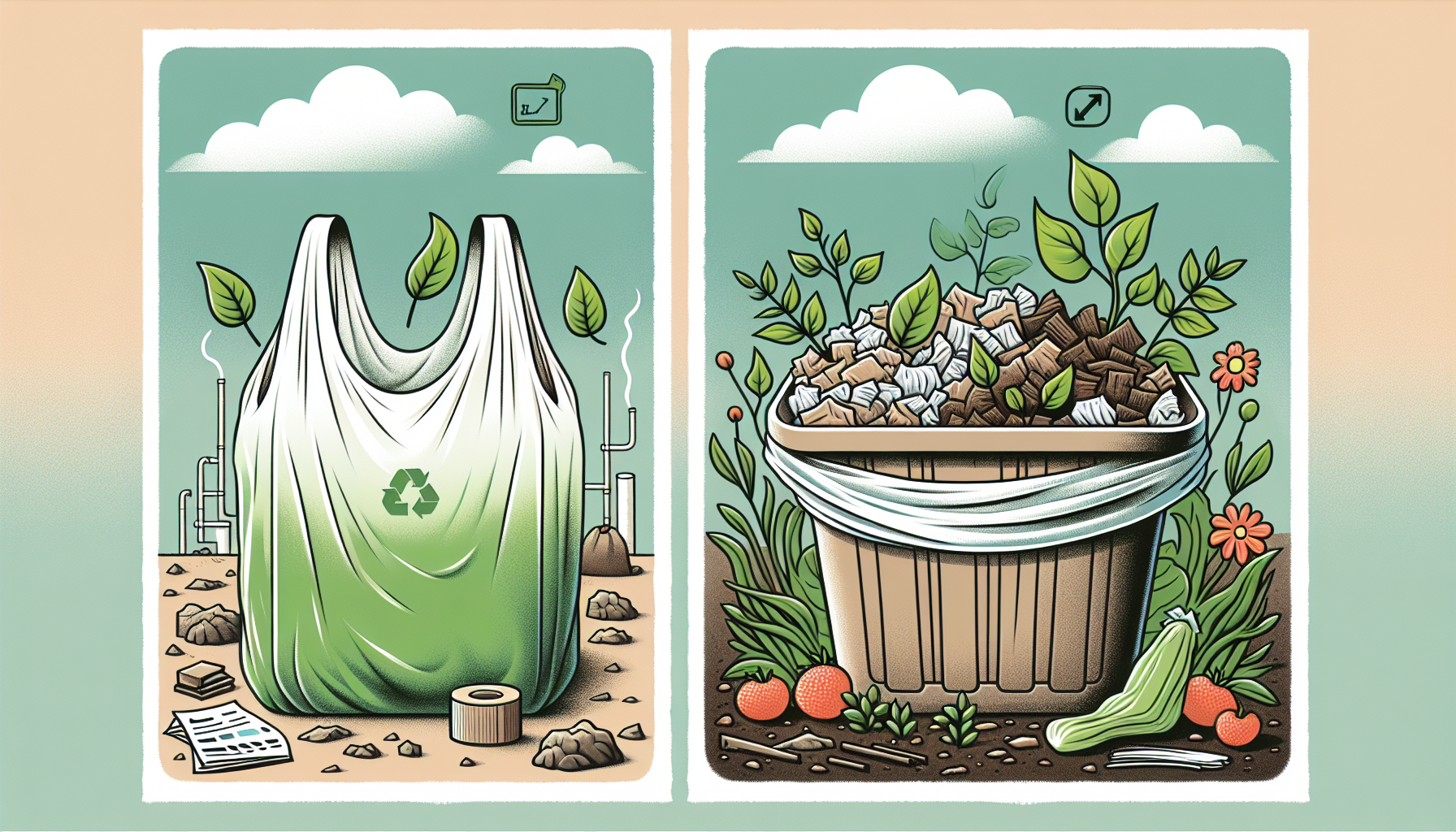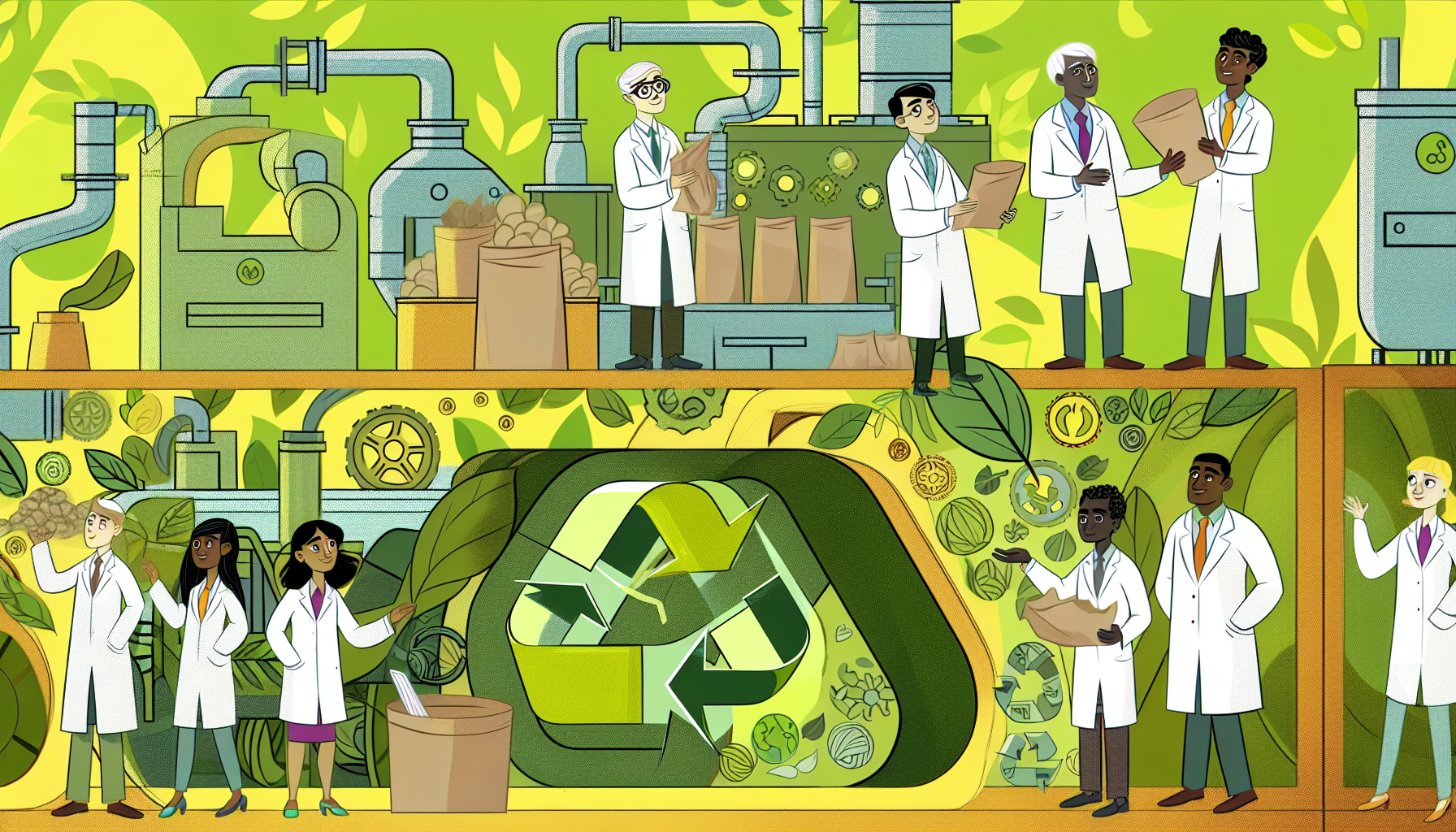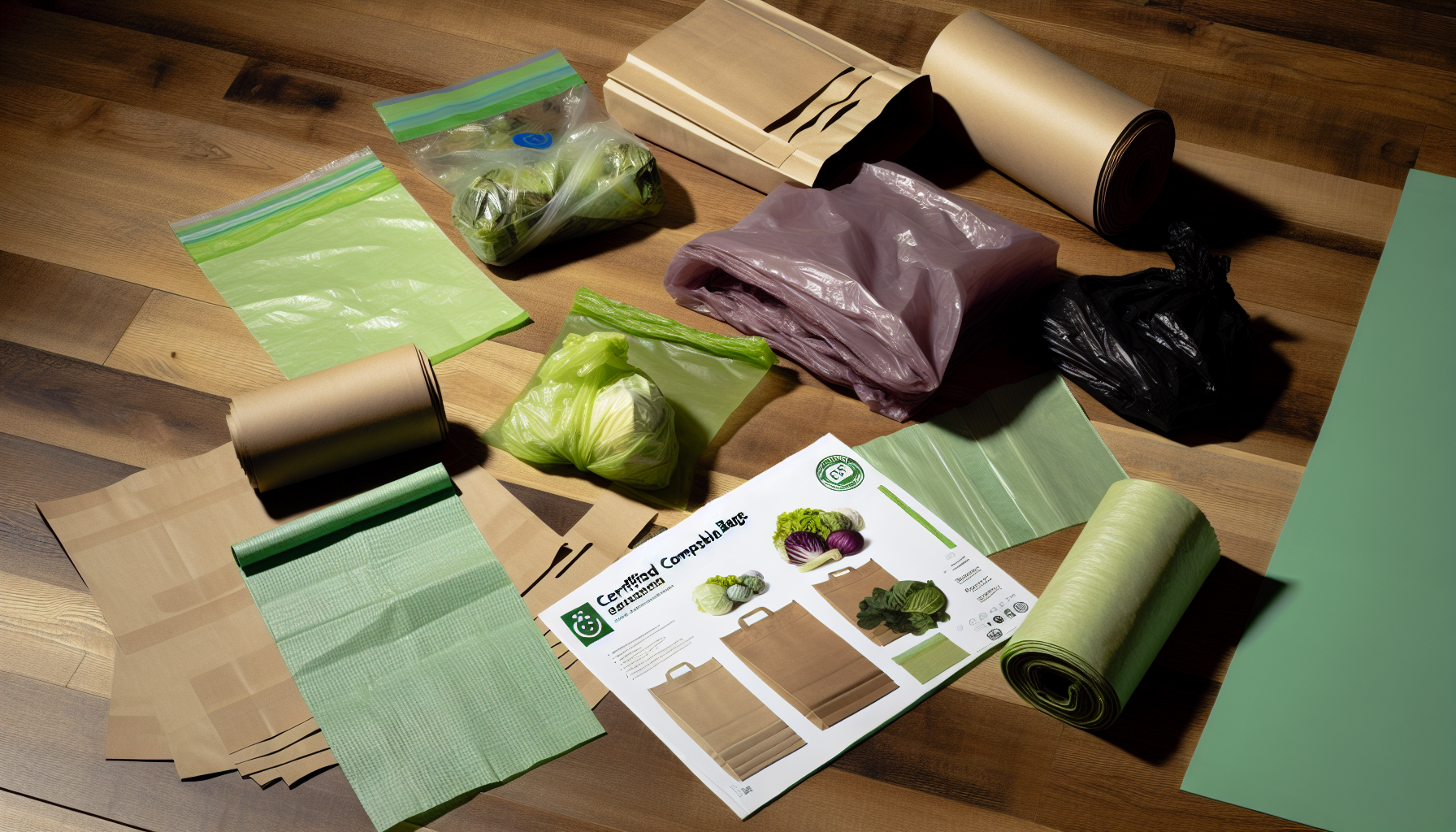The question ‘Are compostable trash bags really compostable?’ lies at the intersection of environmental responsibility and consumer choice. This no-nonsense guide evaluates their true compostability, the required composting conditions, and the various certifications that aim to guarantee their performance.
Key Takeaways
- Compostable trash bags must meet specific certifications like ASTM D6400 to be considered compostable, breaking down within 90 days in proper industrial composting facilities.
- Biodegradable and compostable bags are not the same—compostable bags adhere to stringent standards and decompose within a set timeframe, offering more environmental benefits compared to loosely regulated biodegradable alternatives.
- Proper disposal at industrial composting facilities is necessary for compostable bags to effectively break down, as home composting systems typically lack optimal conditions for these materials.
Unveiling the Truth About Compostable Trash Bags

In the realm of waste disposal, numerous claims are made about compostability and biodegradability. So, what exactly qualifies a trash bag as compostable? A compostable trash bag must satisfy specific certifications and decompose within a set time under suitable composting conditions.
Certifications to Trust
Certifications like ASTM D6400 are trustworthy indicators for compostable bags. Such a certificate signifies that the compostable bags can break down at a similar rate to other known compostable materials within 90 days in commercial or municipal facilities. It is compatible with other global standards like ISO 17088, AS4736, and EN 13432.
Breaking Down the Materials

Compostable bags are a marvel of nature-meets-science, crafted from plant-based, renewable materials like corn, grains, and vegetable oils. These materials can be broken down into organic matter under composting conditions, proving their eco-friendly credentials and making them perfect for disposing of food scraps.
The Composting Process Explained
The composting procedure depends heavily on the delicate equilibrium of moisture and temperature, which is vital for the breakdown of compostable bags. However, the effectiveness of composting environments can vary significantly. Home composting systems often lack the optimum conditions needed for decomposition, making them unsuitable for certain types of compostable materials.
The Misconception of Biodegradable vs. Compostable

Although both terms suggest environmental friendliness, there’s a considerable distinction between biodegradable and compostable bags. Compostable bags undergo more stringent, science-based standards than their biodegradable alternatives, making them a superior choice for the environment. They undergo rigorous testing like the ASTM D6400 to verify their decomposition within a set timeframe under appropriate composting conditions.
Why Not All Biodegradable Bags Are Equal
Contrary to popular belief, biodegradable materials are not subject to a defined timeframe to decompose and can take centuries, potentially contaminating compost with plastic.
This lack of regulation results in a wide variation in decomposition, diminishing their environmental friendliness.
The Importance of Proper Disposal
Appropriate disposal of compostable bags is vital not only for their effective decomposition but also to mitigate pollution and waste management problems. Industrial composting facilities offer a regulated environment that aids in the efficient degradation of compostable plastics.
Mismanagement in waste segregation, including food waste, can lead to compostable plastics ending up in inappropriate places, causing significant processing issues and potential environmental harm.
From Packaging to Compost: The Lifecycle of Compostable Trash Bags
The lifecycle of a compostable trash bag represents a perfect cycle of returning to the earth. These bags are produced from renewable materials and, under suitable conditions, deteriorate into humus, which enriches the soil and promotes plant growth.
Production from Renewable Resources

Compostable bags, also known as the best biodegradable trash bags, are the offspring of nature and innovation, made from biopolymers derived from plant sources like corn, vegetable oils, and grains. These biodegradable garbage bags reduce petroleum consumption, thus lowering pollution levels and offering an eco-friendly alternative to traditional virgin plastic bags.
Disposal and Decomposition
Appropriate disposal is vital for compostable bags to break down effectively. They must be processed at high temperatures in industrial composting facilities, as incorrect disposal can hinder their decomposition.
These bags decompose more efficiently in commercial composting facilities due to optimized conditions.
The End Result: Giving Back to Earth's Living Systems
The final act of a compostable bag is a testament to its eco-friendly design. After successful decomposition, the bags transform into humus, enriching the soil and supporting plant growth.
Thus, compostable bags not only reduce waste but also contribute to Earth’s living systems.
Home Composting vs. Commercial Composting Facilities
Though home composting is commendable, compostable bags require optimal conditions for decomposition, which may not always be available in home compost systems.
On the other hand, commercial composting facilities provide a controlled environment that facilitates faster biodegradation.
Can You Compost at Home?
While you can decompose compostable bags at home, they may take longer than in a commercial facility. Bags certified as home compostable can decompose in approximately 90 days if the right conditions are met.
The Role of Commercial Composting
Commercial composting facilities can handle a broader range of organic waste and provide optimal conditions for compostable bags to decompose. These facilities ensure that compostable bags are processed correctly, contributing to waste reduction.
Reducing Your Environmental Footprint with Compostable Bags
Adopting compostable bags is a proactive move towards sustainability. Correct disposal of these bags aids in preventing pollution and decreasing waste management expenses.
Choosing the Right Bag for Your Needs

Various types of certified compostable bags, including garbage bags, are available, suitable for purposes like kitchen waste and home composting. They fit perfectly in standard kitchen trash bins and offer an environmentally friendly method for organic waste disposal, proving that compostable trash bags work effectively.
The Four-Planet Lifestyle Challenge
The use of compostable bags is a part of a broader initiative to minimize waste, countering the ‘four-planet lifestyle’ in which the ecological footprint of human consumption demands the resources of four Earths for sustenance.
Implementing compostable bags in commercial settings can assist businesses in meeting their sustainability initiatives and environmental goals.
Common Questions Answered About Compostable Bags
Compostable bags need particular certifications, like BPI certification in the United States or EN13432 in Europe, to verify their compostability. These bags decompose into carbon dioxide, water, and biomass, enhancing soil quality.
How Long Do Compostable Bags Take to Decompose?
Compostable bags, when properly composted, typically decompose within 3 to 6 months in a composting system.
Are There Any Downsides to Using Compostable Bags?
While compostable bags offer several environmental benefits, they come with a few downsides such as higher costs and more resource-intensive production.
Summary
In our journey to unravel the truth about compostable trash bags, we’ve discovered that these eco-friendly alternatives, while offering a myriad of benefits, require specific conditions for effective decomposition. With the right practices, compostable bags can significantly reduce our ecological footprint and contribute to a more sustainable world.
Frequently Asked Questions
Do compostable bags actually compost?
Compostable bags will only biodegrade in a compost environment with the presence of micro-organisms, humidity, and warmth. It's important not to place them in traditional backyard composts, as they may not meet the specific conditions required for the bags to break down.
Is compostable packaging really compostable?
Yes, compostable packaging is designed to break down naturally in the right environment, unlike traditional plastic packaging, and leaves no harmful residues.
What are the cons of compostable bags?
Compostable bags can contaminate recycling streams and promote recycling over waste reduction. They also pose cross-contamination concerns and lack a practical disposal option.
Are compostable bags better than biodegradable bags?
Yes, compostable bags are a better environmental choice compared to biodegradable bags due to their adherence to stringent, scientifically based standards.
Can compostable bags be composted at home?
Yes, compostable bags can be composted at home, but they might take longer to decompose compared to a commercial facility. It's important to be patient and monitor the composting process.
You Might Also Like...










